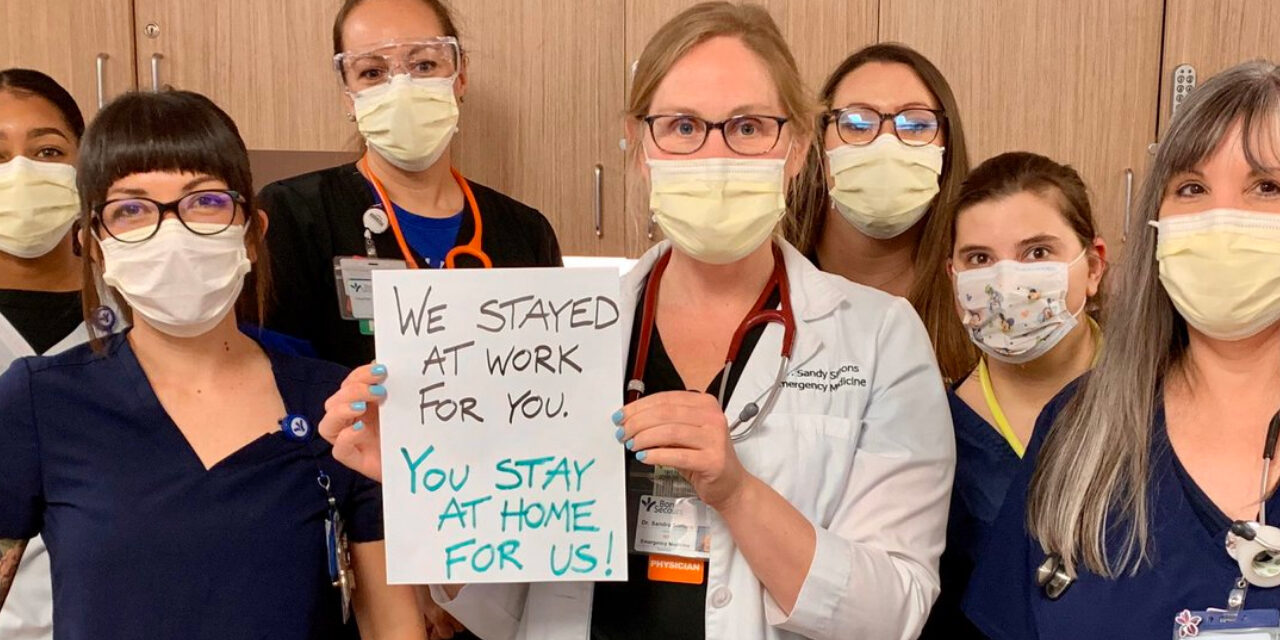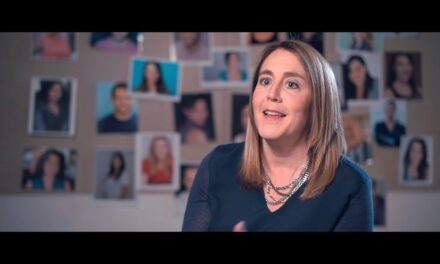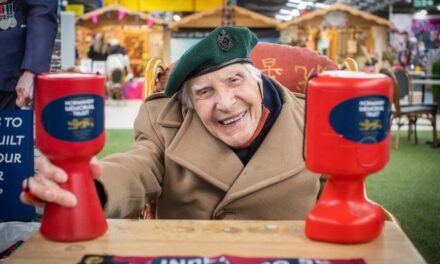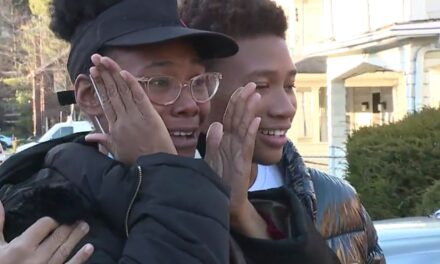Credit: The Dad
If our current global crisis has proven anything to us, it is who are truly the superheros who walk among us. They don’t wear capes and spandex, but they do wear masks and scrubs. Our doctors, nurses, and other medical workers are the real heroes our society needs to stay afloat. Across the world, these brave and women put their lives on the line every single day to provide medical assistance to people who suffer from the highly contagious, potentially deadly virus.
Most people carry a general appreciation for our healthcare workers, but it isn’t often that the entire world experiences a total understanding of just what medical professionals sacrifice to provide their patients care. They can’t work from home. In fact, many can’t even go home. Due to the fact that they potentially carry the highly contagious and potentially deadly virus, men and women everywhere are forced to isolate from their families out of fear of infection.

Credit: Joan Chartier
They work long hours (some more than 70 a week), many times without a moment to take a break. Short staff and an influx of patients hardly allows them the moment to take a break. Joan Chartier, a respiratory therapist in Minneapolis, says she sees an average of one COVID-19 patient per shift. With a lack of training for nurses on the use of ventilators and limited personal protective equipment, Chartier is concerned about the fate of the patients and the hospital staff alike.
“All the N95s [masks] got moved into the manager’s office and locked up,” Chartier reports. “Sometimes after several days they fall apart, they’re not sealing well, or the elastic straps have broken and we’ve been told to staple them back on. The charge nurse has a notebook and writes down who got one, the date and the reason, like we’re 12 years old.”
Some nurses and doctors are forced to wear the same face mask for weeks at a time. The elastic bands and plastic from goggles are tight and uncomfortable for their safety, but they often leave angry red marks and bruises across their faces. They are battle scars for a war that shouldn’t have to be fought. Healthcare workers are physically, and mentally, exhausted in ways many of us couldn’t imagine.
Healthcare workers across the world are experiencing similar frustrations. For a long time, medical professionals have had to deal with limited support from their parent companies, and even their government, but their problems are exacerbated in a time of crisis. Many of these employees call for the same three things: better communication, better support for employees, and holistic support.
For everything our doctors and nurses are forced to endure, the public is showing their true colors and are rising up to give healthcare workers the respect they deserve. One Italian violinist, Lena Yokoyama, took to the roof of a Cremona hospital to honor the healthcare workers there in the form of song. She played Ennio Morricone’s “Gabriel’s Oboe” to inspire hope for staff and patients alike.
People are stepping up to help in little ways that make a big difference. Some are turning to their sewing machines to make masks and scrubs for healthcare workers. One boy from Connecticut is even 3D printing ear-guards for essential workers. Some people, such as small-restaurants, are finding comfort in delivering food to hospitals for hungry healthcare workers.
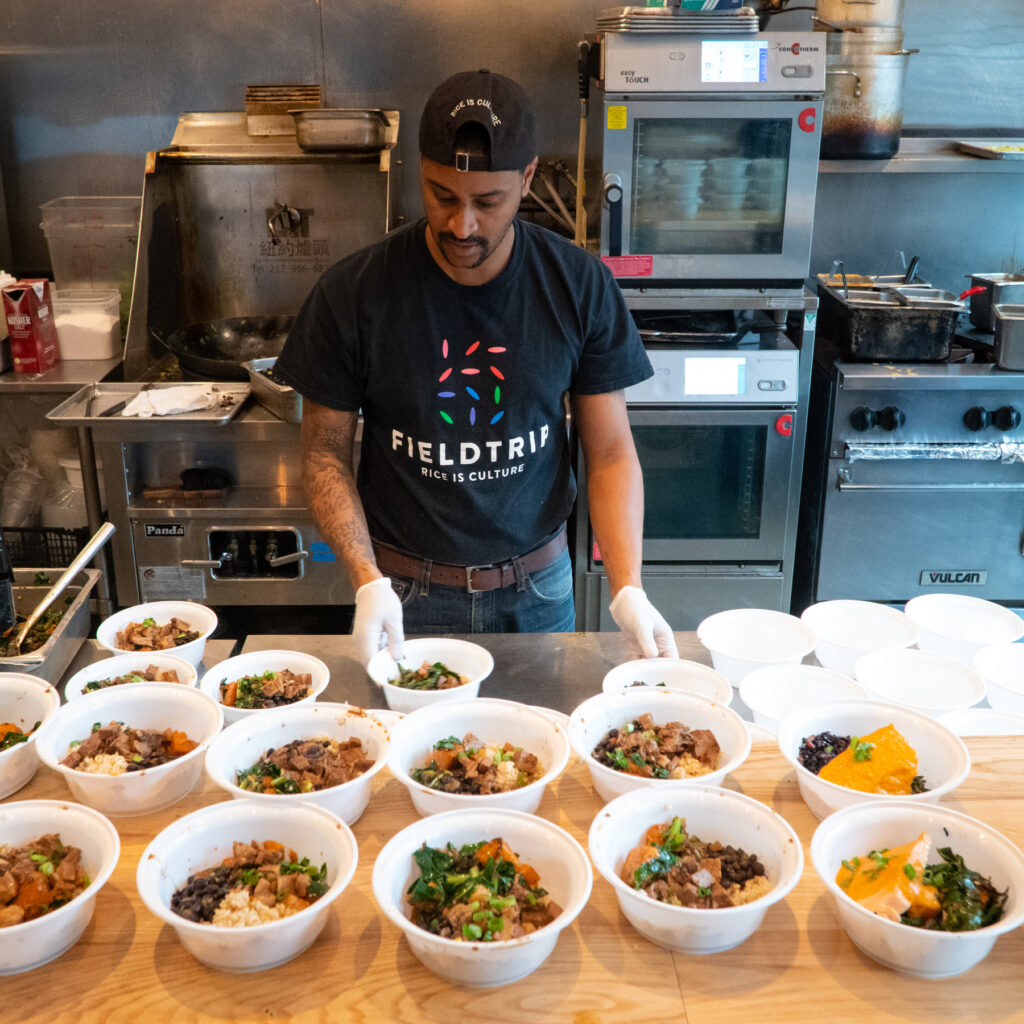
Credit: The New York Times
Even mega-corporations are taking a stand to help healthcare workers. McDonald’s announced that, starting today, those who work on the frontline of fighting the Coronavirus, can receive a free meal. Many healthcare workers have to go without a hot meal, and McDonald’s CEO hopes Joe Erlinger hopes to “[bring] a smile along with delicious food” to the people who need it.
Everyone is frustrated by the quarantine. Everyone wants life to return to the way it was. This experience will teach us to value the lives of others, including our healthcare workers, more than ever before. The best thing we can do to help these professionals, and all essential workers, is to stay home as much as possible. The sooner we do that, the sooner we can move on to a new normal where we are kinder and more mindful of one another.
